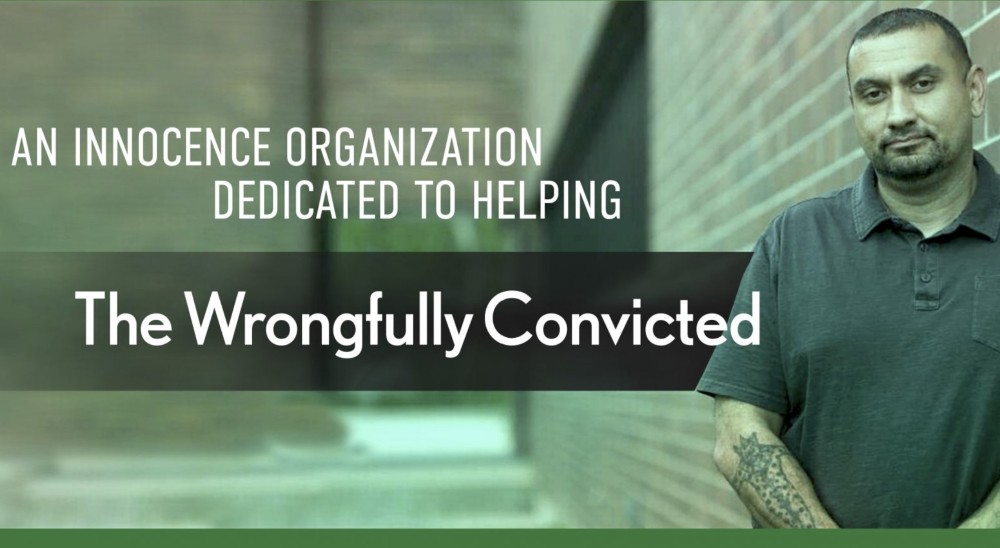Two Toledo, Ohio men, Wayne Braddy Jr. and Karl Willis, are walking free today after spending 24 years behind bars. They were released by Lucas County Judge Gary C. Crook on March 28. They owe their freedom in no small part to Judges for Justice, a non-profit based in Seattle.
The men emerged from the courthouse wearing gray hoodies emblazoned with the initials “O.I.P.” for Ohio Innocence Project. The innocence project had worked for years on their case. This past year, OIP had a boost from Judges for Justice and an assist from investigative reporter Brian Duggar of WTOL-TV. The local station produced and aired a documentary “Guilty Without Proof.”
Braddy and Willis, both African-Americans, had been convicted and sentenced more than two decades ago to life in prison for the 1998 murder of 13-year-old Maurice Purifie. Lone evidence in the case was the testimony of two witnesses, an 18-year-man who repeatedly changed his story, and that man’s girlfriend who testified initially but refused to continue. No physical evidence was ever found.
Judges for Justice were alerted to the miscarriage of justice by former King County Judge Deborah Fleck, retired, and her son Tyler Fleck. Tyler is married to Braddy’s cousin. Judge Fleck assisted in the effort to free the men by writing letters to authorities questioning the convictions. Meanwhile Tyler Fleck created a website, www.freewayneandkarl.com. Their efforts and the work of Seattle’s Judges for Justice helped turn the tide of public opinion by plastering the county with information about the case.
The founder of Judges for Justice, retired King County Superior Judge Michael Heavey, explains that correcting errors of justice is an effort one person alone cannot accomplish. He concludes, “It takes a bucket brigade.” He further explained that, because the Toledo men had entered an Alford Plea to gain their immediate release, Judges for Justice presented them with a Declaration of Innocence, a document signed by four retired Seattle judges: Carol A. Schapira, Jay V. White, Fleck and Heavey.
Judges for Justice was founded by Heavey after the freeing of West Seattle’s Amanda Knox from an Italian prison in 2011. Heavey’s daughter had attended school with Amanda Knox and, when Amanda was detained for her roommate’s murder, Heavey became actively involved in the community effort to obtain her successful release.
In the aftermath, Heavey worked with his long-time friend, another retired judge, Michigan’s Peter Deegan, to establish Judges for Justice as a nonprofit. The organization’s mission is to investigate and raise awareness about individuals who have been wrongfully convicted. During the past ten years, Heavey has kept the group running, sustained by donations raised from concerned individuals and groups like local Rotary Clubs. When it comes to day-to-day operations, Heavey has had help from former Judge Jay White, who serves as the agency’s unofficial CEO. They’ve enlisted a small staff of advisers and videographers who produce podcasts documenting cases of possible wrongful conviction.
Before serving a dozen years as a Superior Court judge, Heavey represented the 34th Legislative District (8 years in the state house and 6 years in the Senate). He explains that Judges for Justice does not represent convicted prisoners, but instead works exploring facts and evidence and then comes in as an “independent neutral” with expertise in wrongful convictions.
As Heavey says, “Sometimes prosecutors, police and juries get it wrong, grievously wrong. Judges for Justice works to shine the light of truth into a community where a shocking crime was committed to help correct the error.” He allowed that strong community outrage sometimes leads to a hasty, ill-considered convictions, but, when community members are made fully aware of past injustice, they can also exert strong pressure to revisit cases.
For a small nonprofit, Judges for Justice has achieved some remarkable wins. The group had a role in freeing wrongfully convicted individuals in Idaho, Oregon, and Hawaii, as well as Ohio. Currently Justices for Justice is looking into the case of Patricia Rorrer, a North Carolina woman convicted of the 1994 murder of an Eastern Pennsylvania woman and her child. The organization is developing a podcast series (“Is Patty Rorrer Innocent?”) explaining why Justices for Justice believe there is reason for questions.
Whether or not the Rorrer conviction is revisited, Judges for Justice can take pride in past efforts, scoring two high-visibility victories just this past year. First there was the January release of a Hawaiian man, Albert “Ian” Schweitzer, who served 21 years of a 130-year sentence, and then March release of the two men in Ohio. Heavey believes justice in both cases was achieved by “appealing to the court of public opinion.”
Discover more from Post Alley
Subscribe to get the latest posts sent to your email.

Proud of the work done by Judge Heavey and Judges for Justice.
Thank you for this. I’m grateful to know there are people and groups like Justices for Justice, Michael Heavey, Carol Schapira, Jay White, Deborah Fleck and her son, Tyler, and Brian Duggar of WTOL-TV.
I am happy to no that judges for justice exists and continue to help those wrongly convicted. I hope they can help my grandsons….